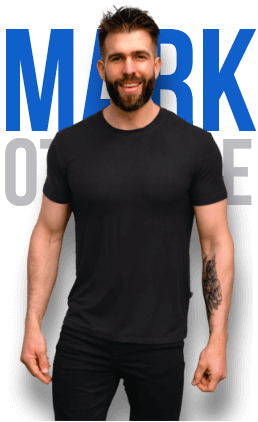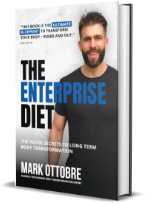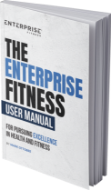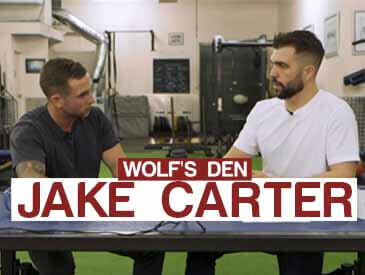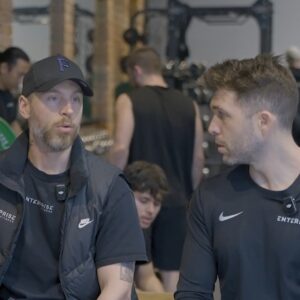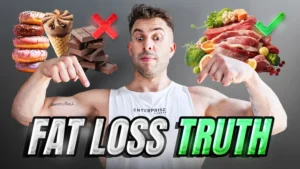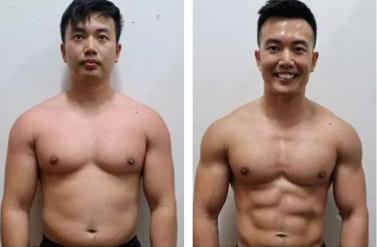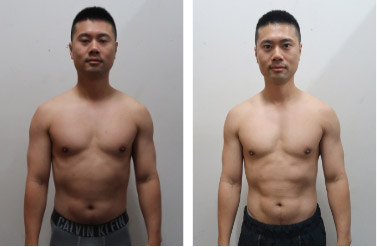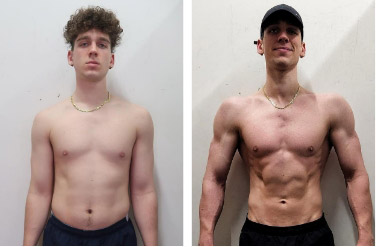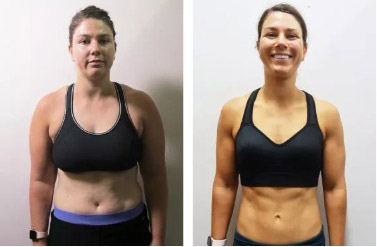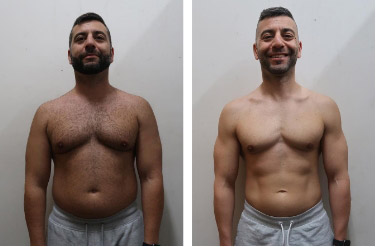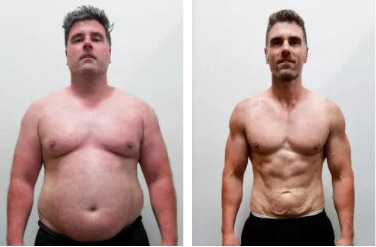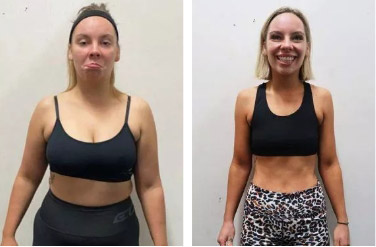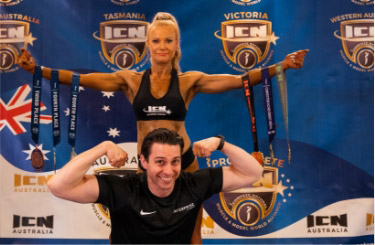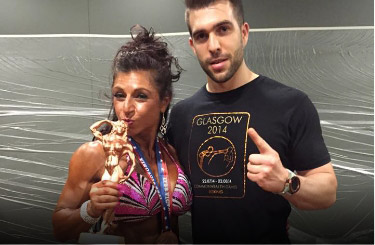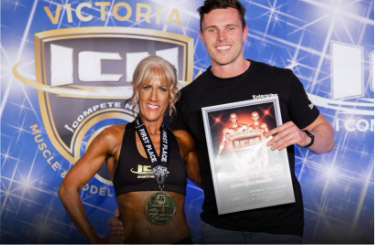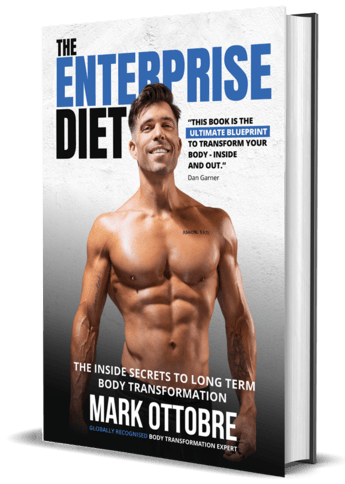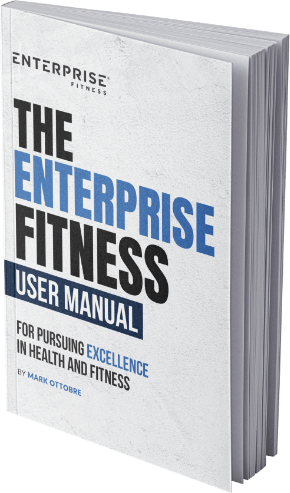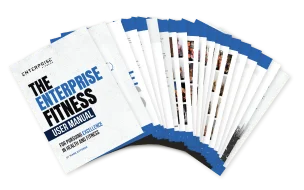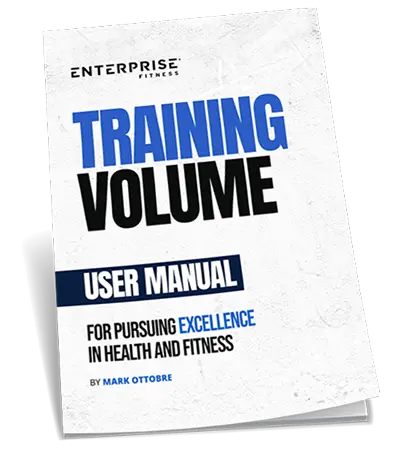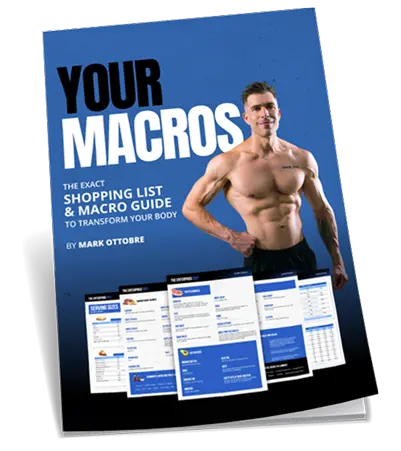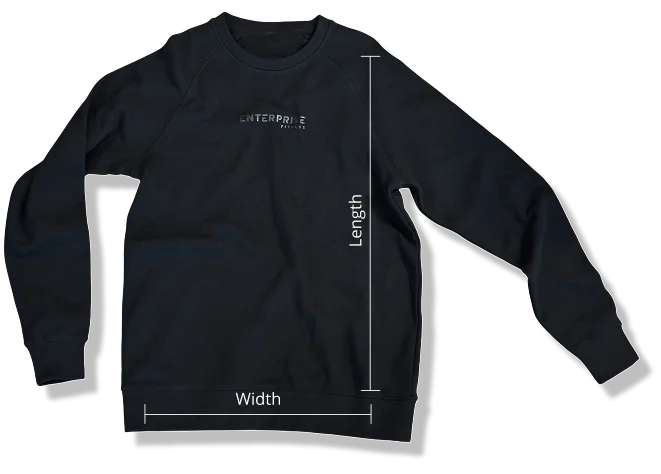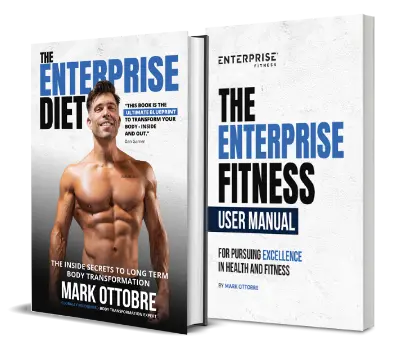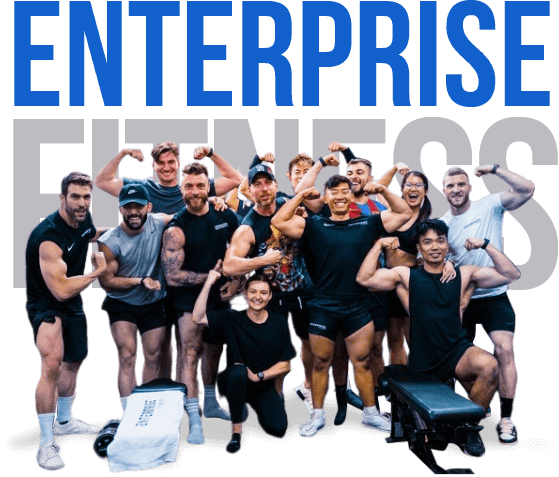Dan Garner joins us for a super insightful Q&A, answering our nutrition questions in the Wolf’s Den.
If you’d like to watch the full podcast, check it out here.
Listen on iTunes or Soundcloud:
Transcript From Dan Garner Q & A on the Wolf’s Den with Mark Ottobre Video
(This transcription may contain errors)
Hey, hey folks, welcome to the show that educates and entertains, welcome to the Wolf’s Den. My name is Mark Ottobre, your host. In this episode, we’re gonna go live to studio audience questions with Dan Garner.
Dan Garner is an expert on nutrition. He’s actually … was the nutritionist for Ronda Rousey and Michael Bisping, two huge UFC superstars. So, he’s a guy who really does know his stuff, you may have seen the episode that we did where it was one-on-one with him and I in the Wolf’s Den.
In this episode, we’re going to field the studio’s questions. Now would be an excellent time to make sure you subscribe to our YouTube channel, which you can do just below. Hit subscribe, and make sure you ring that bell for all future episodes and updates. We’ve got some great episodes lined up, which I know that you’re gonna enjoy.
Hey, look, if you’re new to the Wolf’s Den, and if you’re new to the world of Enterprise Fitness on YouTube, we’ve got weekly videos, and some amazing episodes with the great minds in health, fitness and performance from Andrew Lock, [inaudible 00:00:55], Eugene Teo, [inaudible 00:00:58] and so many others. So make sure you do that.
But without further ado, let’s get into our first question, over to Dan.
So, what are your thoughts on food intolerances? What test do you use to determine them? How do you address them?
Yeah, big topic, right? I think it’s first and foremost important to differentiate some common misconceptions. A lot of people will throw around the idea that food sensitivities, intolerances, and allergies are all the same thing, but they all have different reactionary impacts in the body.
Our immune system responds differently to allergies, right? People will say you have a food allergy, but if you give a peanut to a kid who has a good allergy, his face is gonna blow up, and he’s gonna go to the hospital. Food intolerance on the other hand is what you mentioned. A food intolerance is when our body lacks something. So our body lacks something. For example, a lactose intolerance, that is because our body is not making the enzyme lactase, which is responsible for breaking down lactose, and therefore resulting in proper digestion.
If we don’t have lactase for lactose, then our body doesn’t … can’t break it down, will draw a ton of water into the gastrointestinal track, which then causes bloating and quick diarrhea. Which is what you’ll always see in those people who have lactose intolerance. A food sensitivity, on the other hand, is an immune system reaction that is not as steep as allergies, and it’s not because we don’t lack an enzyme. It’s because our body has identified a certain food as an invader, and has therefore creating an inflammatory response to that given food.
So, when it comes to any scenario, for food intolerance, you simply have to replace what you’re lacking, for a food allergy, that’s something that’s very much life … that’s a life sentence. So it’s something that you would stay away from forever. A food sensitivity on the other hand, what I utilize is something known as the Oxford Biomedical LEAP MRT.
There’s a lot of controversy in terms of food sensitivity, and surrounding say IGG tests and other panels like that. So, I avoid isolating any fragment of it at all, and instead, measure whole body inflammation. So, what happens when you run into inflammation, is you have a white blood cell, and then if something irritates it, then the white blood cell will secrete a lot of different, what’s known as cytokines. These cytokines cause inflammation in the gut, and then eventually in the whole body.
So, the LEAP MRT doesn’t measure the IGG that activates the white blood cell, because there can be many things that activate it, and that’s why IGG is very much critiqued. Instead, the LEAP MRT just measures the end product of inflammation. So no matter what activated it, you’re still gonna be able to measure inflammation, and not a specific white blood cell, which is the biggest critique.
So, what I do is I measure inflammation and not an IGG, and then from that point, I’ll go through a 90 day elimination process, to where they can’t have that food sensitivity for a minimum of 90 days. Then I work to repair the gut during that time, because the food sensitivity was never the problem, it was the result of the problem.
So when I heal the gut, then in many cases, I find about 50% of food sensitivities are eliminated after the 90 day period, and after the gut repair protocol. Then the 50% that do remain, are probably some things that you’re gonna have issues with for life, and should likely be avoided forever. Does that answer your question?
Yeah.
Yeah? Okay.
Thanks.
Yeah.
Hi, Dan. My question is surrounding food as well, and the question is on flavor and taste. ‘Cause especially when you’re training for events, and body building, or a fight, whatever it is, often the food is rather bland. When it comes to sauces, with these curry’s or spices and things like that, how do you factor that into nutrition? ‘Cause we’re human and we love taste.
Yeah, so do I. So, it becomes a scenario where you wanna make the process easier on yourself and not harder on yourself. Like I say a lot, “Consistency beats intensity, every single time.” When it comes to flavors, if something that can work in both ways, and it can work really in a lot of different ways.
So, sometimes if people have control over their impulses, then including something delicious in a hypercaloric state, so including something delicious in a diet, can actually allow them to maintain the diet for longer. But then for other populations, it’s a trigger for them to not have one Oreo, but the whole box, and then go to McDonald’s.
So, you’re gonna have your trigger emotional eaters, and then you’re gonna have your logical tasty food eaters. So, provided you have somebody who falls within the correct slot, then that would be a coaching decision, and not a programming decision. It’d be coaching the person, and not coaching the numbers at that point.
So, if somebody can handle a little bit, and it allows them to remain consistent, then that’s what works for them. But if somebody can’t, and then they should go bland, because that’s what’ll allow them to be consistent, until the fight is happening, or until the event day is there, and then they can go back to eating whatever they were normally eating before.
So, whatever road leads to consistency, is the road that you should take as a coach. Then you can use taste the reverse way as well. So something like my hockey athletes, they’re say a young 15 year old, tall, ectomorph, who’s, you know, 70 kilos, and he’s tall. You need a lot of weight. Then he’s trying to gain weight by eating tuna and rice cakes, let’s not do that. I know that you read that on a bodybuilding site, but instead, let’s put some butter on your potatoes and eat a steak. Because you’re gonna have the same amount of protein in that meal, but the caloric density of the meal’s gonna be wildly, wildly, wildly, more.
So, if you’re gaining weight, eat delicious food, if you’re losing weight, choose the road to consistency.
Dan, so, I know that you work with a lot of high level athletes, but what about your approach with nutrition for junior athletes?
For junior athletes, it’s the same. So, a lot of junior athletes that come my way, I’m still giving them a meal plan, I’m still having them weigh and measure their food. So, depends what you mean by junior as well, how young are we talking?
So, say 12-15.
Oh, okay. So, yeah, so, I was thinking say 15-20. If it’s younger than that, more important than anything else, is developing a healthy relationship with food, than trying to get the desired adaptation. When you’re working with young people, it’s kind of a dangerous area, because you don’t wanna … One thing that happens when you’re young, is you can develop feelings and habits that live with you for the rest of your life.
If you have a coach that trains you way too hard, then you can actually subconsciously associate exercise with pain and discomfort, rather than something that feeds your body for life quality. The same thing with nutrition, you’ll see it with young female ballerinas, or female gymnasts, they run into these coaches who just wanna control their weight, and it ends up being a problem for the rest of their life, and not just their competitive ballet career.
So, it’s something where when I’m working with someone with youth, I always think we’re gonna take an inclusive approach, rather than an exclusive approach, so that their food behaviors are something that are healthy for life. So instead of excluding juice, and excluding cereal, and excluding anything else, I would rather include eggs, so that it’s something where they’re getting more protein, it’s healthier, and we’re not physically telling them, “No more cereal.”
I would rather include more water, so that they’re nice and hydrated, and we’re not physically telling them no more chocolate milk. I would rather include meat as a part of their lunch, so they’re not just having say Fruit Roll-Ups and snacks at school. So, taking an inclusive approach, rather than an exclusive approach, I think is something that wins the battle. ‘Cause if we include protein with each one of their meals, we’re gonna support their body composition, recovery and performance, but protein’s also the most satiating nutrient in nutrition as well.
So they’re gonna feel fuller, longer, which has a natural reduction in sugar, a natural reduction in snacks. So, just think about what you can include, and then forget all about the exclusion game, because mind over matter is what’s important at that age.
Just one more, what’s the biggest challenge that you face coaching athletes at the highest level?
Coaching athletes at the highest level. The biggest challenge that I face is probably just their travel schedule. A lot of times just because … To me, I’m coach Dan to them, so I’m an authority figure right away. Whether they’re a UFC fighter, NFL athlete, no matter how alpha male they are, everybody knows that you have to listen to coach.
So, them being adherent to my program’s never been a problem, it’s making the program fit their travel schedule. So, yeah, finding ways in which to work with their team chef, or get meal prep for them, or let them know what restaurants they can eat at, that’s probably the biggest struggle.
Thank you.
Yeah.
Dan, so how did you … Who was the first UFC fighter that you did the nutrition for? And how did you come about striking that deal?
It’s a wild story, man. My first UFC fighter that I ever got was Michael Bisping, and it was when he was fighting Anderson Silva. So, it was like, “All right, no pressure, it’s my first UFC fighter, and he’s going against arguably the greatest of all time. So, let’s get into this.”
So that was … It was crazy, but one of the rules I have is say yes, and then figure out how you’re gonna do it after. ‘Cause that’s the only way you’re gonna push yourself, is to get uncomfortable, get comfortable being uncomfortable, because anytime you’re uncomfortable, is … anytime you ever feel uncomfortable, it’s the perfect sign to you, that you have room to grow in your life.
If you’re not comfortable doing something, it means you’re not confident. If you’re not confident, it means you’re not competent, and if you’re not competent, then you still have room to grow. So, I always say, “Yes, let’s do it,” and then I go home, and then I’m like, “Okay, shit, how are we gonna do this?” Then I figure it out.
But when that came about just from a strength coach in California. So, I got … I was already working with some of his NHL and NFL athletes, but then another one of his clients was Micheal Bisping, and he said, “Hey, dude, can you do weight cuts?” I was just like, “Yep, let’s roll.” So, that’s how it happened.
Yeah, yeah, nice. How do you think … ’cause there’s so much talk about weight cuts at the moment in the UFC, there always is. Do you think it’s progressed? Or do you think it’s gone backwards? Still a lot of fighters canceling fights and missing fights, where do you think the standard’s at?
I personally, even though I get paid a lot of money for weight cuts, I would rather see them gone in the UFC. It would make my job easier, ’cause then I could focus on performance and recovery, and not the weight cut. During a fight camp, I think that there would be less cancellations, some of the research suggests too, that although we can hydrate the muscle cell, the brain isn’t fully hydrated by the time the fight comes around, and that you can get more concussion symptoms, and more brain damage easier, by getting kicked, punched, kneed in the head in a state of dehydration and a dehydrated brain.
So, I would rather the industry move forward and eliminate weight cuts altogether, but the weight cuts that are happening now are a million times better than even they were five years ago. Five years ago, there was still super, super, old school stuff of cutting so much weight in a sauna, and then also never swallowing your spit even, you’d have a spit bucket, and you just … anytime spit comes into your mouth, you spit it out, you never swallow your spit. You sit in a sauna and you suffer.
We’re way beyond those days, and my athletes feel great when they do weight cut, but as a fan, I would like to see it gone.
Okay, cool. You did Ronda Rousey? So you worked with her?
Yeah.
Yeah, what was that like?
It was awesome. It was very, very, very, cool. It was something where … It’s funny, I came from a town of 1,500 people, and then TMZ was calling to interview me, and I was like, “What is happening right now?” I’m sitting at home on my laptop, and TMZ called me for an interview. Then they called my wife, to try and get into contact with me, ’cause I wasn’t picking up my phone. I was like, “How did they get my number? And how did they get her number? What is happening?”
So, it was crazy, news people are crafty, and news people lie. So, they went onto say that I was Michael Bisping’s coach, and we won the title, and that was true. But then they went onto say that I was [inaudible 00:13:58] coach, and that I won the heavyweight title with him. I was like, “Well, that literally never happened. I’ve never been his coach, I’ve never even had a conversation with Steve [inaudible 00:14:06].”
So, a lot of people say fake news, but did I ever get exposed to it. I was reading articles online, completely made up about who I was, who I worked with, it was just because of the star power of Ronda. So, Ronda is cool to work with, she’s a cool person, she’s very driven, and I like her as a person, and it was fun to work with her.
Yeah, nice. I’m interested to know why you said Anderson as your most admired athlete before?
Because my favorite sport is MMA.
Okay.
I’ve been watching MMA since before MMA was cool. I was watching TKO fights, jungle fights, pride fights. I always watch the Pride 2003 Grand Prix live, I was that guy in Canada at 3:00 AM watching Japanese fights. So, that’s my favorite sport in the world, and just the legacy he led is something that’s super, super, admirable. I think that he’s awesome.
Yeah, nice, man.
Hello, Dan. I’ve got a few for you. For a fat loss client, how important do you think macronutrient timing and meal frequency is?
Very. Very.
Like half of the importance of say, if you had calories in versus calories out?
Timing is super important. So, we’ve seen this in research too, that even spread distribution of protein in a day causes greater 24 hour rates of protein synthesis, then askewed levels, and one of the reasons why I’m not a fan of intermittent fasting. But timing is really important, and especially in a state of hypocalorism, because of something known as protein redistribution.
So, there’s something known as the fractional synthetic rate that happens 24 hours a day. Fractional synthetic rate is the rate at which you build muscle after a workout. So, if you workout on Monday, you’re gonna recover that muscle tissue for three to four days after that. So it’s a 24 hour day process.
But something else that happens at the same time, is the fractional breakdown rate. The fractional breakdown rate measures the rate at which you break down your muscle tissue, ’cause although training is eventually anabolic, it’s acutely catabolic. You break yourself down before you build yourself back up.
Now the fractional synthetic rate and fractional breakdown rate happen 24 hours a day. If you don’t … So, to kinda back pedal a little bit, building muscle and muscle repair is an amino acid driven process. So, if you don’t have amino acids available in the blood stream 24 hours a day, it’s gonna go back to what me and Mark were talking about. You’re gonna have to get it from somewhere. The only two places that amino acids are coming from are dietary protein, and the protein that’s currently on your body.
So, when you’re dieting, and your muscles are under repair, you can actually redistribute protein from one area of the body to another, in order to support recovery. But, if you have amino acids readily flowing in the blood steam 24 hours a day, then you can use dietary amino acids to feed that muscle that currently is calling for recovery in repair, so that you don’t need to rob from Peter to pay Paul. So you don’t need to take from somewhere else.
So, meal frequency and an even distribution plays a role in making sure that not only do you maximize protein synthesis, but equally as important, you fight any form of protein breakdown. Keeping your muscle in a diet is wildly important. We want fat loss, not weight loss.
Yep. How do you time carbohydrates?
Timing carbohydrates?
Yep.
I mean, what I call them is adherence carbs. So, what’s first and foremost is, what’s gonna allow for the greatest amount of consistency over the allotted period of time. So I call them adherence carbs. Do you like to have carbs with dinner with your family? ‘Cause you sit down for dinner, and you like to enjoy carbs. Your wife makes carbs for dinner, so you wanna sit down with your kids, and that’s something you wanna do, I’m not gonna take that away from you.
So, adherence is always number one. But number two is pre-intra, post-workout. Those three areas are by far where carbohydrates are being best metabolized into lean muscle tissue, and not … Now this is something I cover in my seminar, is don’t worry about PM carbs versus AM carbs. There’s been eight studies on that, it’s completely inconclusive at this point in time.
So, when it comes to carb timing, pre-intra, post, plus adherence.
Yep. Sweet. Okay, next question is how would you coach the perfect carb load for a sports game? [inaudible 00:18:38]
Coaching the perfect carb load?
Yep. Yeah, so how long before? How much?
Yeah, if someone’s depleted, it seems to be about 10-12 grams per kilo of body weight, if they’re completely depleted, for about two to three days. So, 10-12 grams of carbohydrates per kilo of body weight for two to three days, would be your maximal carb load for that timeframe.
But something that’s important to understand, is something that’s called the ileal brake. So we have sections in our stomach, we have our duodenum, our jejunum, and our ileum. Your ileum, if you have way too big of a meal, and your body is still digesting something, your ileum will put on something known as the ileal brake, and stop digestion. That will actually stop carbohydrate loading.
So, one thing that I always recommend my athletes do, is have their last high carb meal in the early afternoon, and not late at night. Because if you have it late at night, and you have a great, big, carb meal, ’cause you can have 1,000 grams of carbs per day on these types of loading periods. Reese knows what I’m talking about with the 1,000 day carb meals.
So, I have per athlete specifically, I have them have their last high carb meal in the mid afternoon, because if the ileal brake can still easily be on by the time you get to breakfast. If the ileal brake is still on by the time you get to breakfast, then that will delay gastric emptying even further, and you’ll have gastric distress going into your competition that day.
So, biggest important thing, 10-12 grams of carbs per kilo of body weight for three days, only if they’re in a state of complete depletion before that. Then have their last high carb meal in the afternoon and not before bed.
Cool, thank you very much.
You briefly touched on the effects that sleep can have to body composition and hormones. So what then are your, I suppose, your markers to quantify good quality sleep and time periods, and the differences between your REM and the deep sleep? How do you quantify good sleep, really? How would you improve your sleep hygiene, and sleep practices?
Sure. So, I literally wrote the book on this, if you’re interested. If you go to eatsleepburn.com, I wrote a whole book on how sleep impacts health, physiology, body composition and athletic performance.
So, it’s a monster of a book, but that answers this question in excruciating and painful detail. But, very shortly, how you would measure sleep length, sleep quality. Sleep length, essentially for most people, most of the time, there are varying populations that fall outside of the bell curve of sleep, but seven to nine hours for adults that are active, seems to be the sweet spot.
When you train very hard, it’s kind of counterintuitive. People would think if you’re training very hard, you need more sleep, but we’ve seen in the research that training all by itself improves sleep quality. So, although it increases your need for sleep, training itself also increases how much REM sleep you get per night.
So, seven to nine hours per night, whether you’re training hard or not, and I would want that to be the length, and for my people, I would want them to awake feeling energized, feeling rested. That’s something that’s super important, and it’s kind of a subjective in which you can measure sleep quality. You can use apps to measure sleep quality as well, but I think they’re kinda shady. I don’t think that they’re best, I like subjective measures the most.
So, that would be length, and then the other one would be quality. Then when it comes to sleep, if someone is sleeping poorly, as I’m a broken record, sleeping poorly is the symptom, it’s not the problem. We need to find the problem that is resulting in someone sleeping poorly. So, if it’s anxiety and nervousness, then say something like [inaudible 00:22:33] can really help, because it’s directly demonstrated to reduce anxiety.
If it’s something like shift work, then melatonin can be effective, ’cause melatonin and exposure to daylight are the two most effective things you can do to correct a jet lag. You can do it in two ways too, if somebody needs to fall asleep quicker, you can utilize sublingual melatonin. If somebody has problems staying asleep, then you can use a prolonged release melatonin. Douglas Labs makes one of the only ones for that.
So, those things help in the specific areas of anxiety and shift work, and then beyond that, a lot of people don’t know that if you have a food that you’re sensitive to, for example, well, that’s gonna cause a transient stress in your body. So, if you have a food that you’re sensitive to, it’s gonna cause stress, stress causes an immediate increase in cortisol, cortisol runs antagonistic with melatonin. So anytime cortisol’s high, melatonin is low.
So, a lot of people won’t think about that. “I can’t get to sleep at night”, but they’re having the same meal before bed every single night, and not connecting it to the fact that they might have a sensitivity to that food. So, a lot of different ways that you can approach it, the book will really help you, but right tool for the right job.
Let’s give Dan a round of applause, folks.
Thank you for watching the Wolf’s Den. Make sure you subscribe to us, ring that bell, and if you’re listening to this on iTunes, please leave us a review. Make sure you stay tuned for more great episodes that are just around the corner, and if hey, if you’ve missed some of the old ones, do check them out, we have some ripper episodes.
Till we see you on the next one, train hard, supplement smart, and eat well.
Related Posts


